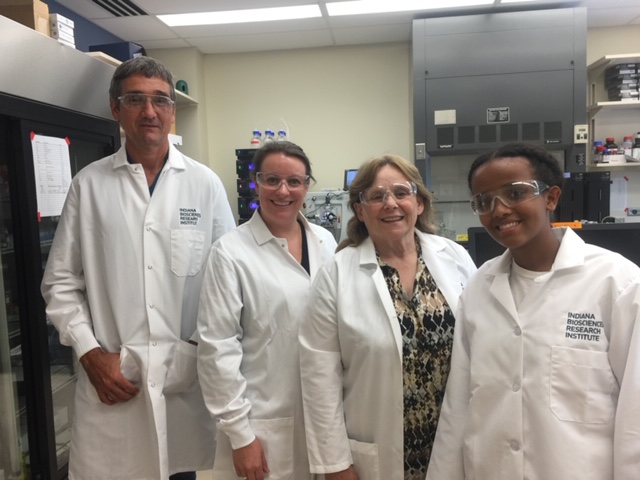Over the summer, I participated in a summer program called Project SEED/STEM. It is a program created to give students an opportunity to spend the summer in a lab environment based on the science-related career path they have chosen. Once accepted, students are matched with researchers who mentor them in the lab.
Project SEED/STEM offers other opportunities for the interns such as luncheons that include special speakers from different areas of science, as well as medical student speakers. There is also a field trip to the Indiana Medical History Museum in downtown Indianapolis, and students are taught how to keep a lab notebook to store all of their research.
For my lab internship, I was matched with Dr. Michael Pugia at the Indiana Biosciences Research Institute. My main focus was using real-time PCR, polymerase chain reaction, to test different strains of E. coli by amplifying certain strains of DNA. I worked with two different strains of DNA—one that isn’t resistant to antibiotics and another that is resistant to antibiotics. The specific genes I targeted were the CTX-M gene that indicates a resistance to certain antibiotics, and the 16s gene that indicates the presence of bacteria. We wanted to test for the presence of these genes in the two strains.
When a PCR test is run, a gene that comes back amplified means that it was found and was duplicated. We hoped that the CTX-M gene would come back amplified in the resistant strains because it has a beta-lactam that makes it resistant, and we hoped that the 16s gene would exhibit in all of the genes because it is universal in all bacteria. We decided to focus on E. coli because it is one of the most frequent causes of bacterial infections. After we finished many tests, our results came back as expected, proving our theory. These findings are very important to establish as they help with treatment options.
After finishing our research, each student created a poster that was used at the end of the internship in a poster session in which we presented the research we completed over the summer.
In conclusion, I would say that the people at the lab where I was interning are really nice, and the staff was always there when I had questions. They understood that the students had lab work, so they were lenient toward us and in the events that they planned. I think the biggest benefits of my internship are what I learned about labs and research, as well as the connections I’ve made.


